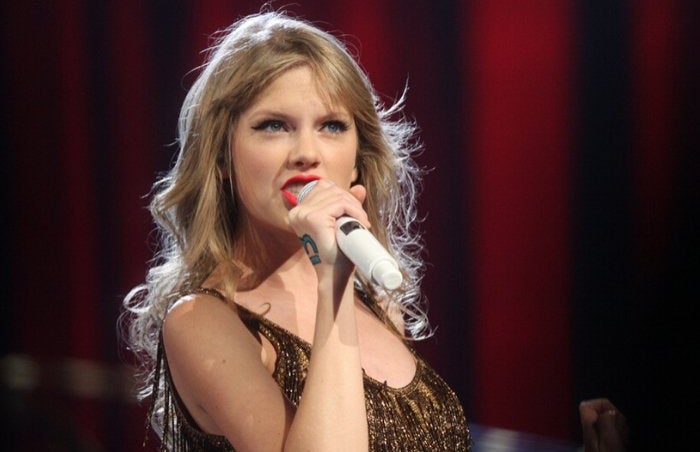I have to admit – I was a hater. Since Taylor Swift first debuted her self-titled album in 2006, I ensured that I would never be a fan of her or similar female artists. I could follow Justin Bieber, One Direction, Taio Cruz, or some of the other popular musicians of the early 2010s, but never a female artist. Yet, sixteen years later, you most definitely will catch me listening to some of those early songs, like “Picture to Burn” on full blast or better yet – “Picture to Burn (Taylor’s version).”
I have no shame to admit that I am nineteen years-old and just emerging on my Taylor Swift phase. Honestly, it shows how much I have grown in my own skin and become comfortable with my femininity in supporting other women.
Growing up, I was socially trained to prove that I am not a typical girly, Taylor Swift-loving girl. Pink was not my favorite color, I would rather play basketball than hula-hoop, and I was the most aggressive girl at P.E. It was echoed throughout my childhood that being different from the typical elementary-age girl would be met with less hate or commentary from male peers. Sports and supporting male artists on the radio were a few of the ways that I would “prove” that I was “not like the other girls.” In modern terminology, I would have been called a pick me girl.
The label “pick me” originated several years ago, referring to people – usually girls – who go against their gender norms more than typical for their gender. This phrase is used to pit females against each other from an early age and perpetuate the patriarchy that exists within our society. It keeps those who are in charge feeling powerful and meanwhile manages to strip everyone else of their feeling of control. In this sense, it seems like a mechanism to distract women from the true enemy: the system. We become focused on where we fall on the gender spectrum and attempt to be different enough but not too different from the rest in order to stand out to the male gaze.
In short, this means that both the girly-girls, the “pick me girls,” as well as all of the girls who fall in between are chastised by society just for simply existing and expressing themselves. There is no right way to be a young female in the United States without being faced with some commentary from others.
Everything about being a young, female-presenting individual divides groups to compete against each other or constantly compare themselves until their worth is diminished. This lessens self-esteem and enables patriarchal ideals. In regards to music, it’s “pick me” to listen to rap or country or indie, or any music that males might appreciate. Apparently everything that is typically male-dominated cannot be also cherished by women without facing some kind of backlash. And for the girls that do like Taylor Swift or Ariana Grande or Fifth Harmony – or any girl band for that matter – are too basic and boring. Therefore, through some kind of social conditioning, we conclude that these listeners are less worthy. Either way, the feminine energy cannot win.
It also does not help that every single female artist is sexualized. Even Billie Eilish, who is notable for how conservative she dresses in public, is discussed on social media in regards to wondering what her body looks like. Fans of any female artist are also subject to some sexualization simply for enjoying certain kinds of music. Swifties are often perceived as being innocent, and that in turn is a fetish for the male gaze. Barbz, Rihanna’s Navy, or Selenators have their own stereotypes as well, which somehow end up becoming idealizations for girls in sexual circumstances. Unfortunately this is the reality of the music industry. No matter how equal we believe that female musicians are to their male counterparts, men will never have to experience the blatant hatred and further sexualization at the same time that celebrities such as Nicki Minaj or Lizzo or Demi Lovato face every single day online.
In sum, there are more early 2000s girls who are just emerging into their Swiftie era simply because enjoying her music is more generally accepted from personal experience. Liking TSwift almost seems to be synonymous nowadays with being in touch with your own femininity. Other female artists that have unnecessary resentment from groups in society just represents how we are seemingly threatened by powerful women in the music industry. And this needs to end, for the best interest of future generations of girls.


